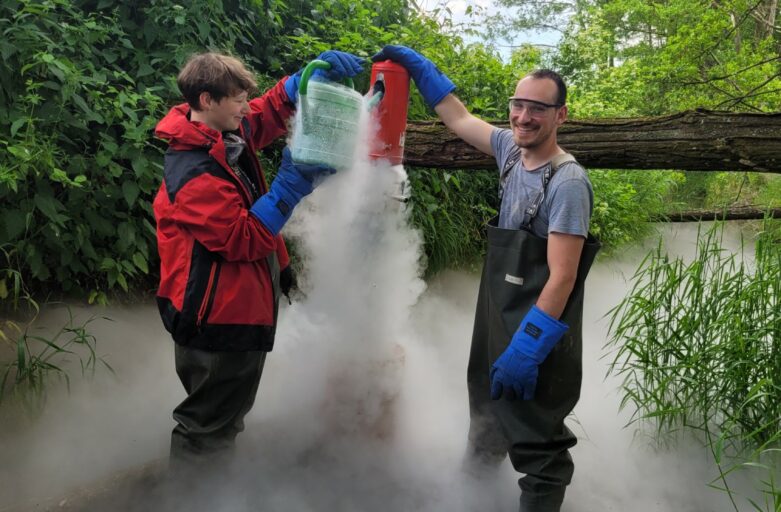The IGF takes part in resettling and preservation programs of freshwater mussels in the state of Thuringia. Bodies of water are investigated of previously known sites of the exterminated eastern pearl shell (Margaritifera margaritifera) as well as sites of the still existing but endangered common river mussel (Unio crassus). Both mussel species are prone to fine sediments and sapropel, thus our focus lies in the determination of the degree of colmation of the hyporheic zone.
The ”Bottom Sampling”- method is used to collect sediments of certain areas of the river bed. Using liquid nitrogen, the lower part of the bottom sampler directly connected to the river sediments is shock frozen allowing to extract an up to 10 cm thick sediment sample. The samples are subsequently sieved, and their sediment composition analyzed.


